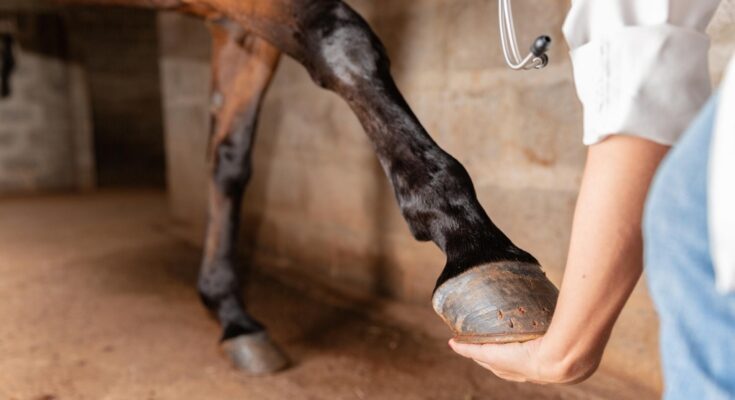As a horse owner, knowing how to feed your horse in line with their lifestyle and being aware of nutrition is crucial. Laminitis is a condition that can affect any horse, and knowing how to manage an at-risk horse’s diet to reduce the risk of the condition from taking hold is essential. This is where alfalfa can play a role as a low-risk feed ingredient. Below, we’ll take a closer look at alfalfa and how it can be utilised within the equine diet of a laminitis-prone horse.
Understanding Laminitis
Laminitis is a well-known condition in the equine world, and many horse owners will be aware of the risks that it poses. This condition affects your horse’s hooves and occurs when the laminae – the tissue that connects the hoof wall to the coffin bone – becomes inflamed and damaged. This can be extremely painful for the horse, making it difficult for them to carry out their daily activities, and results in severe lameness. There are a number of factors that can cause laminitis, with the main issues being diet and obesity, as well as trauma to the hoof and metabolic disorders. If your horse alters its stance, is shifting weight from foot to foot, or has an accentuated digital pulse within the hoof, they may well be suffering from laminitis.
As a horse owner, ensuring your horse is healthy and comfortable is your main priority, which is why knowing more about laminitis and what to look out for is crucial. One of the ways in which you can reduce the risk of your horse suffering from this condition if they are prone to it is to feed a low sugar and starch diet and this is why alfalfa can be useful.
Nutritional Benefits of Alfalfa
Utilising alfalfa within your horse’s diet comes with a range of advantages, especially for horses that may be more at risk of developing laminitis. Here are a few of the benefits that horse owners should consider:
Low in Sugar and Starch
Alfalfa is a member of the legume family and so is different nutritionally to grass which is the basis of most horse’s forage rations. Laminitis is associated with high sugar and starch intakes so alternatives such as alfalfa and straw are useful for providing high-fibre diets without high levels of these key nutrients. You may be interested to know that alfalfa stores the sugar it makes in its roots which is a part of the plant horses don’t eat!
High Protein Content
Alfalfa is relatively high in protein, which means it can be a useful way to meet the increased requirements for this nutrient that working and breeding stock have. It usually needs to be diluted with other high fibre materials such as straw for leisure horses – the ideal combination for good doers and those prone to laminitis.
Rich in Calcium
Not only does alfalfa include essential protein, but it’s also a source of calcium that allows your horse to maintain strong, healthy bones and hooves. Calcium is also a natural buffer to acidity in the digestive tract and so is also useful for promoting gut health. If you’re looking for a feed to ensure your horse is getting a nutrient-rich diet, alfalfa may offer the solution.
Digestible Energy
Whilst cereals and grains are packed with calories and energy performance horses may require, a diet rich in these ingredients can cause issues within the gut, resulting in weight gain and metabolic issues. A diet rich in starch and carbohydrates also increases the risk of laminitis too. Alternatively, alfalfa is a highly digestible form of energy, which means performance horses and those in hard work can benefit from the energy they need, without adversely affecting the digestive system.
Natural Nutrients
Ensuring your horse’s diet contains everything it needs to thrive is essential. Adding alfalfa to your horse’s diet means they’re consuming a range of natural nutrients like beta-carotene, a pre-cursor for vitamin A and various B vitamins. This is even more important for horses on restricted grazing as part of a weight management plan as they also miss out on lots of natural nutrients in the grass. Alfalfa also contains trace minerals like cobalt, which allows your horse to synthesise vitamin B12, which is essential for iron absorption and vital when it comes to energy utilisation.
Introducing Alfalfa to Your Horse’s Diet
One of the key alfalfa benefits when it comes to feeding your laminitis-prone horse is that it’s low in sugar and starch content, and therefore helps to maintain a healthy, balanced gut and reduce the chance of suffering laminitis when used as an alternative to cereal-based feeds. But there are a few factors to think about before feeding your horse alfalfa.
Make sure you introduce changes gradually to avoid any digestive issues. As well as this, make sure you consider whether your horse’s diet is balanced with the vitamins and minerals they need to suit their lifestyle. A balancer or supplement is likely to be needed to ensure your horse receives everything they need.

